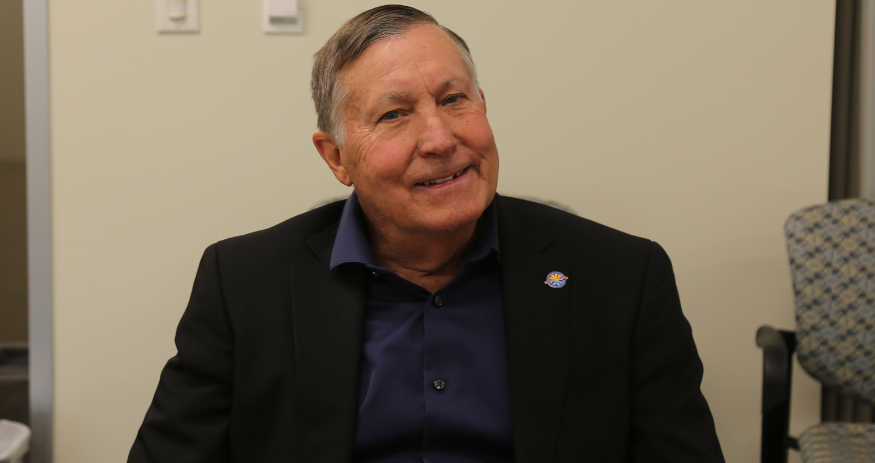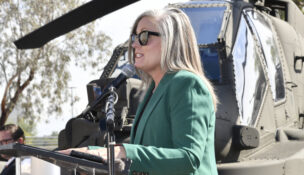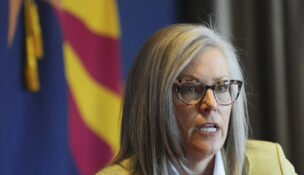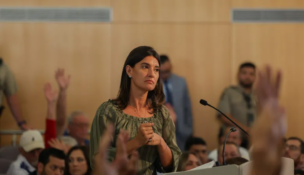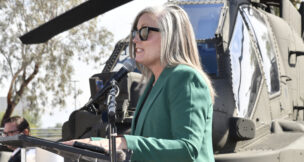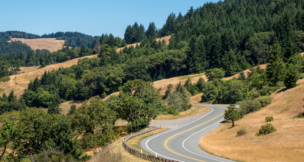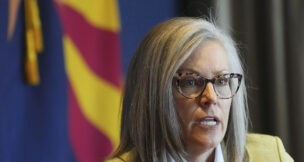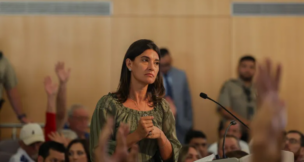Tom Buschatzke: Keeping Arizona’s faucets functioning
Reagan Priest Arizona Capitol Times//November 22, 2024//
Tom Buschatzke: Keeping Arizona’s faucets functioning
Reagan Priest Arizona Capitol Times//November 22, 2024//
For nearly 10 years, Tom Buschatzke has been the arbiter of Arizona’s water supply as director of the Department of Water Resources. In a career spanning decades and beginning with an internship at the very department he now heads, Buschatzke said there’s never been a dull day.
The questions and answers have been edited lightly for style and clarity.
What initially got you interested in water and water policy?
When I was an undergraduate student, I decided to become a geology major because I liked the opportunity to potentially work outdoors, especially when you’re younger in that field. I went to undergraduate school in upstate New York, where there were lots of rivers, streams, etc. So the three pathways with that degree were probably mining, oil or water. And I just got more interested in water, but more from a technical standpoint. I had aspired to work for the United States Geological Survey, and actually had a job offer from them, a job that would have started on October 1, the first day of the federal fiscal year. Shortly before that job started, their funding got cut. My job was no longer there, so I didn’t pursue that pathway … So then I decided to come here to go to graduate school and in school, I saw an advertisement for the newly created, at that time, because it was 1982, this department was created in 1980, I saw an internship advertisement on a billboard at ASU and said, “I kind of need some money, so I’ll go take this internship.” And once I got here, I started thinking, “Well, this is kind of interesting.”
What is it like to be the director of a department you were once an intern at?
If in 1982 someone said, “Tom, someday you’re going to be the head of this department,” I’d have told them they were out of their minds. There are a lot of really positive benefits that flow from it. First, having kind of worked my way up the chain, I recognize what it’s like to be at that level, at the intern level first, and then at the entry level and understand the challenges. I understand, because I’ve done it. But I also understand, having been an intern and worked my way up, how we viewed leadership at the time and how we would have loved to have had more of an opportunity to get input into leadership in a meaningful way. When I’m in the room with my staff, if they don’t tell me, I call on them and say, “What do you think?” They don’t get away with just sitting there because I value what they have to say. I know when I was younger, I had stuff to say probably that could have been valuable that I had a lot less opportunity to say. In that regard, the work world has changed. There is more value assigned to less experienced employees in general in the work world than there was back when I was younger. I think that’s a very positive step forward.
What has kept you involved in water policy for the past few decades?
I think there’s several factors there. One, the policy side is really very interesting. It is hugely challenging, but it has so many different pieces to it that most days I come into my job – and it’s been this way for a long time – I learn something new. After 42 years plus, you wouldn’t think that would be the case, but it definitely is. And I just think that for the future of Arizona, what I do is really important, and probably that drives me as much as anything, and has always driven me. When I was in Phoenix, it was for the future of Phoenix, but also in the context of the state and the region. Now, it’s the state and the region as well. So, I actually, crazily maybe, enjoy the interaction at the federal government level with the Department of Interior, other agencies that I’ve interacted with over the years, U.S. Fish and Wildlife Service, EPA, etc. I think those are also really interesting connections to doing water policy, just the breadth of it is sometimes daunting, but also what keeps you motivated, because there’s rarely a dull day. I always say part of what’s motivating me now is my two grandchildren who live here and who probably will live here for a very long time, if not their entire lives. But I characterize that as not just my own [grandchildren], but everyone else’s. Again, I’m doing this for the future, the future good for the state.
What do you wish people knew more about when it comes to water in Arizona?
So, I think maybe the single biggest issue is people don’t understand that the community they live in matters in terms of the reliability of their water supply. There are communities that are very reliable, and there are communities that are less so, and when the Rio Verde Foothills thing blew up, I doubt those people knew the risk that they were under before it blew up. I have a younger daughter who was a club soccer player. [The parents] would say, “What do you do Tom?” and I tell them, and they’re like, “Well, how’s my water situation?” And I’d say, “Where do you live?” And they’d be like, “Well, why does that matter?” I’m like, it does because [of] the way water rights and supplies have developed over the years, this whole first come, first serve, prior appropriation and other things. I would really be a lot happier if people were more aware. I don’t want this to sound negative, because I think this is a two-sided coin. What I have helped do, what I’ve helped create, is a level of reliability for people that perhaps is taken for granted. There is no one who goes like this with their faucet and nothing comes out, right? That’s because of stuff that I and many, many, many people have done over many decades. And I think that is somewhat of a unique situation in the world. The number of people, or the number of areas, that have refined water, 24/7, that’s clean and healthy is a very small percentage of the population of the world. I think it would be good if people recognize how good they have it. The last thing, and this gets into really difficult issues, people want their services to be as low cost as possible, yet to address what we’ve already created and to address what we need to do in the future is going to take more money. When Flint, Michigan, had their issue with their water quality, it was about a couple of million dollars they didn’t want to spend because their constituents are saying, “We don’t want to have to pay those rates.” I think that’s something that people have to start thinking about. If they want to continue that reliability, the cost is going to go up, probably higher than the cost of inflation.
What do you recommend for people who want to learn more about their water?
We live in an information overload world, but through your individual water provider, whether that’s a city or a water company, the universities, this department, there is so much information that’s at your fingertips on the internet. It just takes a lot of time to slog through it, and it’s very down in the weeds, if you really want to understand it. One of the most difficult things for me, certainly, is when I get interviewed on television media and they want to be able to tell the story in 20 seconds. You can’t tell the complete story in 20 seconds. You can’t tell enough of the story on X. We live in a sound bite world, and these issues are pretty hard to describe in a sound bite world. So that’s a challenge for us, and it’s a challenge for people who are trying to get information, to make the commitment to really get down into the weeds so they can really understand the benefits and the risks that are facing them and us.
Being an agency director sounds like a stressful job. What do you do to keep yourself grounded?
The first thing about the stress level is it’s very stressful, but my stress is reduced by the people I have around me who work with me and who provide that support. Then some of it is my home life. I’ve been married for 40 years. I have three daughters, two who live here, so I still see them. I see my grandkids. I used to be very physically active. I worked out a lot of my stress in the gym. I always went to the gym several times a week, played golf when we were younger, played other sports that you can’t play when you’re older. But I still play golf on occasion, I don’t expect to play golf and shoot some fabulous score. It’s my social event with my friends. I have season tickets to ASU football games, so during football season, we go to six or seven games, depending on the year. We go to one game out of town, one away game a year. Those are the ways I deal with that pressure. I think it works out well most of the time, but sometimes it can be tough to deal with. But like I said, having my friends network, my family network is a good outlet.
Are you reading or watching anything interesting?
My reading outside of work is pretty minimal these days, which is very different than when I was younger. I don’t watch a lot of TV, when I do it’s sports. I like to watch the Turner Classic Movie channel, and then I like to watch documentary-type stuff. I just watched on Netflix, something about the Cold War nuclear weapons, and now I’m watching a World War II in color documentary on Netflix. I like history, which, interestingly enough, one of the really important parts of our policy is the history of how everything evolved. I almost decided to be a history major in college, but I figured I’d never get a job.
You’ve been at ADWR for nearly 10 years, do you plan on sticking around?
I have no plans to leave anytime soon. I do think when I leave, when I finally decide to retire – which I’m way past eligible – I think it’s going to be retirement. Lots of people do consulting or try to keep their hand in it. One of the things my water policy adviser mentor always told me is, “Tom, when you do the water policy, if you’re not down in the weeds and at every level, all day, every day, it’s not something you do part time.” Because you lose the connections, and you lose your ability to be effective. When he retired, he was like,, “Tom, I’m going to disappear.” And since he retired 22 years ago, I think I’ve seen him four or five times. He doesn’t follow the water stuff anymore. The couple times I’ve seen him, [one] was when I accepted being the director, and he called me like, “Let’s go to lunch, explain to me why you did this.” So I think I’m gonna probably go down that same path.
What legacy do you hope to leave on ADWR and the state of Arizona?
That I left the state in a place where there’s a road map to addressing the water challenges that are facing us. I don’t expect to solve them all, but I want to make sure that there’s a pathway to doing it so that the next whomevers, director, staff, etc, have a solid foothold on solving those issues. Also, I am a huge proponent, as you can imagine, of this department hiring interns. When I was an intern here, there was about a dozen or so interns, most of them went on to really impactful things in the world of water. One went to the EPA. One went to the New York State EPA equivalent. Two of them, one was as the head water person for SRP for years. The other was the second or third in command at SRP on the water side for many years. So I fully embrace and recognize the value of internships in terms of launching people’s careers, and the value that not only it gives to the state, but the value that it gives to the water community.
Is there anything else you think people should know?
I would just hope people understand that this department makes decisions in view of what’s good for the entire state of Arizona. That’s our charge. So, sometimes when you do that, individual groups are aggrieved. But I hope people understand that that’s what we have to do. The other thing that I want them to understand, in relation to the Colorado River, this state was the first one to really embrace meaningful roles for tribes. Now, there are other processes in other states, but we were really the ones who started bringing them into the fold, probably around 2016 or 2017. It goes to what I say publicly all the time, we need everyone to participate if we’re going to address the challenges of that river. One of the other big things we hear is like, “We want to be in the room.” Well, it’s hard to negotiate something with 100 people in a room. We’ve tried to create layers of participation, but that frustrates a lot of people [who say], “I have a stake, I should be in the room.” I think we have, relatively successfully, figured out a way, through having different layers, almost like an inverted pyramid, to get people to have the opportunity to really weigh in with us. Also, this department was devastated by the Great Recession. It went from 240 or 245 people to 90. When I became the director in 2015, we were probably about 122. We’re twice that now, and that occurred with the support of the stakeholders in this state. They wanted this department to grow back again, because even though they are aggrieved sometimes by some of the decisions, they understand. I think that is part and parcel of demonstrating they recognize the larger benefit that this department creates. I’m very thankful that we have that support.

